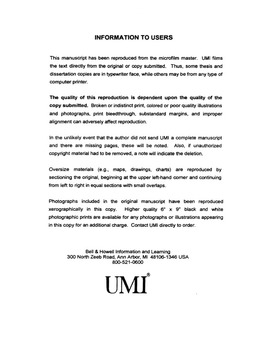| dc.contributor.advisor | Merrill, Kenneth, | en_US |
| dc.contributor.author | Jones, Eric Scott. | en_US |
| dc.date.accessioned | 2013-08-16T12:18:04Z | |
| dc.date.available | 2013-08-16T12:18:04Z | |
| dc.date.issued | 2001 | en_US |
| dc.identifier.uri | https://hdl.handle.net/11244/259 | |
| dc.description.abstract | The first section of the dissertation examines Kim's views on the nature of physical reality, causation, physical causal closure, and experience. For example, I find that Kim's views of experience are limited by his inheritance from classical empiricism. Instead, a radical empiricism in the tradition of James and Whitehead is the proper philosophical position. Because Kim lacks this radical empiricism, he locates the source of his mental realism not in direct experience, as I do, but in practical reason. During my critique it becomes clear that Kim's mental realism functions as one of many a priori commitments. Because his mental realism is not a matter of direct experience but is an a priori commitment, Kim does not have the means of avoiding his own dilemma. | en_US |
| dc.description.abstract | In this dissertation I bring some of Kim's presuppositions to light with the intent of analyzing them. I analyze from the standpoint of the metaphysics of Alfred North Whitehead and find the way out of Kim's dilemma. | en_US |
| dc.description.abstract | At the end of Supervenience and Mind, Jaegwon Kim is left with a dilemma: he cannot save both mental causation and consciousness---in order to save one, he must sacrifice the other. This is a troubling conclusion. Kim is committed to mental realism, which asserts that mentality involves both causation and consciousness. So Kim himself finds the conclusion troubling. His arguments are a successful refutation of the popular position of nonreductive physicalism. I agree with the success of this refutation but want to reject his concluding dilemma. | en_US |
| dc.description.abstract | By contrast, when we adopt the Whiteheadian stance that basic experience reveals connections in the world, we can develop proper notions of causation, physicality, and mentality that are logically consistent, coherent, adequate to the data, and applicable to the broad range of our lives. Experience itself becomes the source for our doctrines of both subjectivity (in its higher form---consciousness) and causation. What results is a panexperientialist physicalism that rejects the basic dichotomy between mind and body that underlies Kim's analysis and avoids his dilemma by claiming that the mental and physical are two aspects or descriptions of the same event. | en_US |
| dc.format.extent | xxi, 210 leaves ; | en_US |
| dc.subject | Mind and body. | en_US |
| dc.subject | Philosophy. | en_US |
| dc.subject | Philosophy of mind. | en_US |
| dc.subject | Metaphysics. | en_US |
| dc.title | A Whiteheadian critique of Jaegwon Kim's analysis of the mind-body problem. | en_US |
| dc.type | Thesis | en_US |
| dc.thesis.degree | Ph.D. | en_US |
| dc.thesis.degreeDiscipline | Department of Philosophy | en_US |
| dc.note | Source: Dissertation Abstracts International, Volume: 62-01, Section: A, page: 0199. | en_US |
| dc.note | Adviser: Kenneth Merrill. | en_US |
| ou.identifier | (UMI)AAI3000734 | en_US |
| ou.group | College of Arts and Sciences::Department of Philosophy | |
